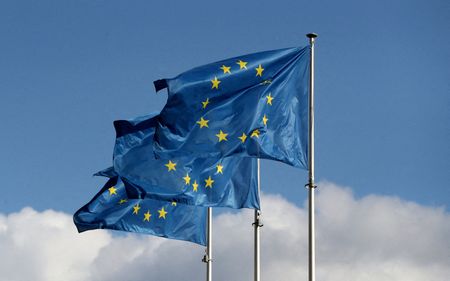FRANKFURT (Reuters) – The European Union risks falling significantly short later this decade of the public funds it needs to achieve its climate goals, a study published by the European Central Bank showed on Wednesday.
The EU aims to be climate-neutral by 2050 but this will involve huge investment, driven mostly by private firms, supplemented by public incentives, ranging from direct funding to tax brakes.
Green investment is already too little to meet the EU’s 2030 climate target, meaning even more investment is required later, and implying higher transition costs, the paper said.
While the necessary public funding for this year and next is in place, a gap could open up from 2027, potentially exacerbated by governments’ need to repay funds received from the Next Generation EU fund, the bloc’s post-COVID recovery package.
“A noticeable shortfall of EU public funds may materialise after the (Recovery and Resilience Facility) expires at the end of 2026, which increases to around 54 billion euros ($55.49 billion) by 2030,” the study, which does not necessarily represent the views of the ECB, said.
The ECB estimates the public sector share’s of additional climate-related investment needs to be around 83 billion euros per year through 2030.
While national governments may provide some of the missing money, they will be burdened by having to repay 175 billion euros in Next Generation EU Funds between 2028 and 2035, the ECB added.
($1 = 0.9732 euros)
(Reporting by Balazs Koranyi; editing by Barbara Lewis)











